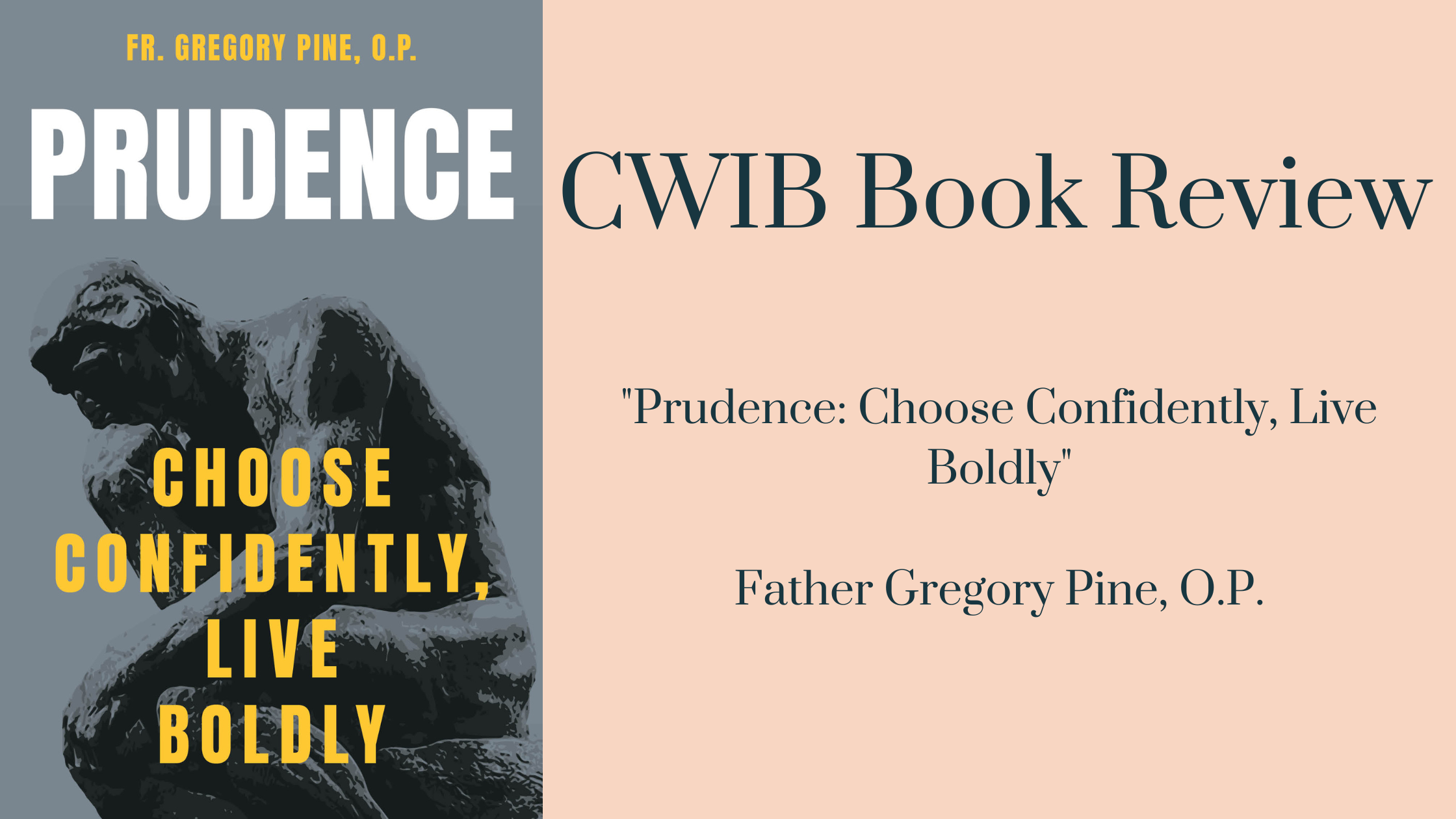CWIB Book Review: “Prudence”
“Moral virtue is a habit accompanied by right reason, which of course, is prudence” (St. Thomas Aquinas).
The word “prudence” can sound boring. It often stirs up images of being abundantly cautious or overly uptight. It does not incite a life that is happy, joyful, or free and implies that to be prudent is to live closer to the Puritan way of life than to live a “wonderful adventure with Christ,” as Pope St. John Paul II described.
In contrast, “Prudence: Choose Confidently, Live Boldly,” by Father Gregory Pine, OP, defines prudence and explores how it can help us live a happy and free life with God.
Prudence Guides Other Virtues
According to Father Pine, prudence is “right reason applied by doing” and a “habit of acting according to sensible, reasonable standards.” It is thought and follow-through, recognizing that life is more than isolated moments but, rather, part of the bigger picture of life’s ultimate purpose of freedom and happiness in God.
The Catechism of the Catholic Church defines virtue as a “habitual and firm disposition to do the good” (1803). Virtue transforms us by giving us the tools to live a life that is happy and holy. The virtues both heal and elevate our passions by helping us to remember the purpose of a life with Christ and not be ruled by desire, pleasure, hate, fear, or anger. Ultimately, the virtues help us in choosing well.
Prudence is both a virtue and a guide for the moral virtues of justice, fortitude, and temperance in shaping who we are. It forms our character. Father Pine uses the image of a charioteer to describe how prudence directs the moral virtues: Prudence is the charioteer, while the moral virtues are the horses. As the charioteer, prudence knows each virtue’s inclinations and urges them on to their fullest potential. Prudence and the moral virtues work as a team to reach the end goal: a life of freedom in Christ.
Living a Happy and Free Life
Prudence is action. It is knowing what is good and doing what is good. To be prudent, we need the sacrament of Reconciliation. Confession is more than reciting our sins and hitting “reset”; it is making an act of contrition and receiving absolution, which empowers to “be better and live better,” writes Father Pine. When our examination includes the virtues, we can see where God is prompting us and how we are responding to him.
Life will present many choices to us. With prudence, we can choose what is good and right in our own life’s circumstances. Prudence is thought, action, and assessment. We can think through a decision, see through that decision, and then assess the decision so as to grow, cultivate self-knowledge, and come to self-acceptance. Knowing who we are leads us to offer God our failings and successes, which leads to a life of happiness and freedom with Christ.
As Father Pine writes, “The best life for you is the life that God actually gives.” God does not want us to fail or be miserable. He wants us to be happy and to become saints. We can be confident that our life is a product of his love. He is excited for us to live our lives with and through him.
“Prudence: Choose Confidently, Live Boldly” is a book to read and reread for deeper reflection on confidently and boldly living the life God has given you.
Alexandra (Alex) Harrel resides in Irving, Texas. She is a new student affairs professional within the world of higher education. In her spare time, she loves reading, listening to podcasts, and spending time outdoors. Her favorite prayer is Hail, Holy Queen. You can follow her on Instagram at @2012alexandra.


